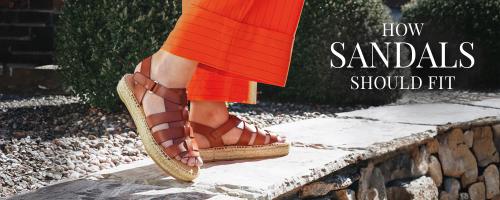
How Should Sandals Fit? Guide to Sandal Fitting
4 September 2024
Having a reliable, well-fitting pair of sandals in your shoe collection is highly recommended. They’re comfortable, versatile, and easy to wear: the dream combo.
But how should a pair of sandals fit? By nature, they’re quite different to other shoe types, meaning your points of reference for a good fit may not be applicable.
With this in mind, we’ve put together this guide to how sandals should fit. After reading, you’ll have the knowledge you need to select a comfy and well-fitting pair.
Here’s what we’ll cover:
- How should sandals fit
- How to tell if your sandals are too big
- How to tell if they’re too small
- Whether to size up or down with sandals
- How different sandal types should fit
If you’re looking for a new pair of sandals, take a look at our curated collections of men’s sandals and women’s sandals.
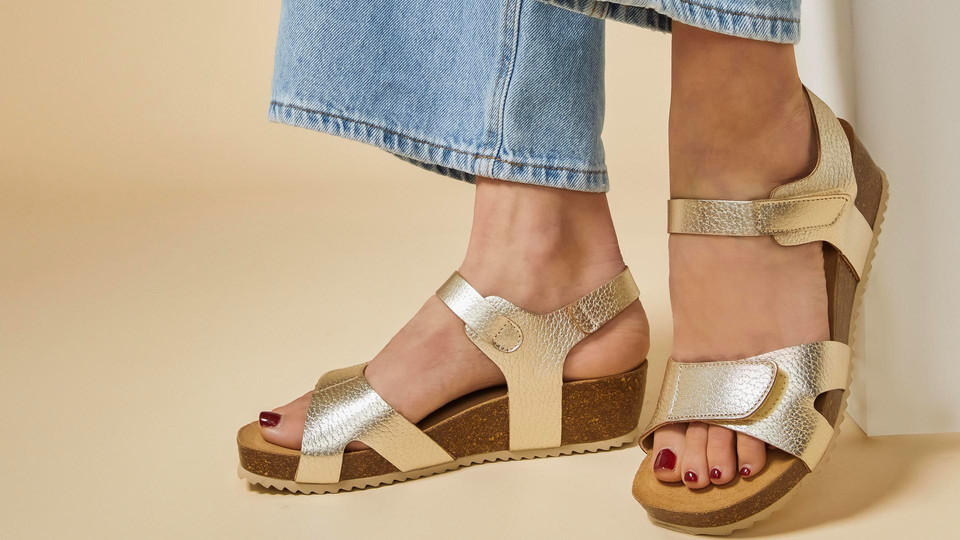
How Should Sandals Fit
Ensuring your sandals fit correctly is crucial for your comfort in the short term and your foot health in the long term. There are three areas to check for a good fit: length, width, and straps. Let’s take a look at each.
Length
Length is important for any type of shoe. With sandals your toe should not extend beyond the front edge, and there should be a gap of around 1 cm between your heel and the back edge.
This will give your toes enough space to move freely without going beyond the front of the sandal, guaranteeing comfort and protection.
Width
When it comes to width the general idea is that your sandal should not pinch or squeeze your foot. No part of your foot should hang over the side of the sandal.
Straps
For sandals with non-adjustable straps, they should be snug but not tight. They should hold your foot securely in place with no discomfort and no marks left on your foot when you take them off.
For sandals with adjustable straps, these can be used to tailor the fit exactly to your foot. Follow the guidelines above to ensure a good fit and remember you can loosen the straps if your feet swell during the day.
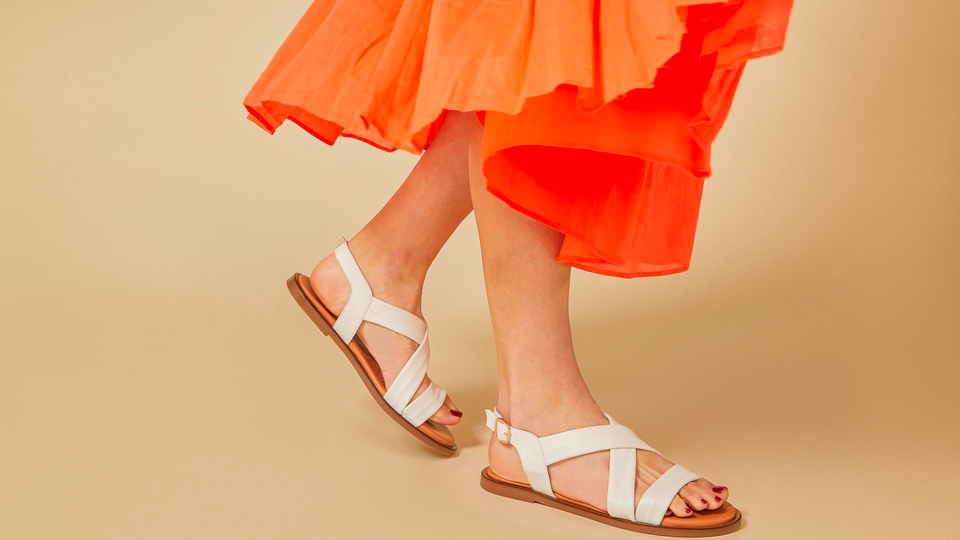
Recap
To recap, here’s the checklist for a well-fitting sandal:
- Toes don’t extend beyond the front
- 1cm gap between heel and back edge
- No pinching or squeezing
- No part of your foot overhanging the sides
- Snug but not tight straps
- No discomfort or marks left on your foot
How to Tell If Your Sandals Are Too Big
If you’ve got a hunch that your sandals are big, here’s what to look out for:
- Excessive movement: your feet will slide around inside the sandal, or they may even slide off completely
- Too much space at the back: if there’s a gap of much more than 1 cm at the back of the sandal, this is a clear sign, they’re too big
How to Tell If Your Sandals Are Too Small
And here are the telltale signs for a sandal that’s too small:
- Your feet feel pinched: if your sandals are pinching you and causing physical discomfort, they’re either strapped up too tight or, if loosening the straps doesn’t fix the problem, they’re too small
- Overhanging toes: they’re also too small if your toes hang over the front, your heels hang over the back, or your foot hangs over the side
Should I Size Up or Down In Sandals?
With information about how to tell if sandals are a good fit, perhaps you’re wondering what to do if you’re between sizes. The short answer is, size up.
A little bit of movement while you walk or a slightly too big gap between your heel and the back of the shoe is less of a problem than tightness and pinching. And if your sandals have adjustable straps, tightening them a little further works well to counteract the slight oversizing.
Our ranges of men’s and women’s sandals are handpicked to ensure a wide range of fits, and are a great place to look if you need a comfortable new
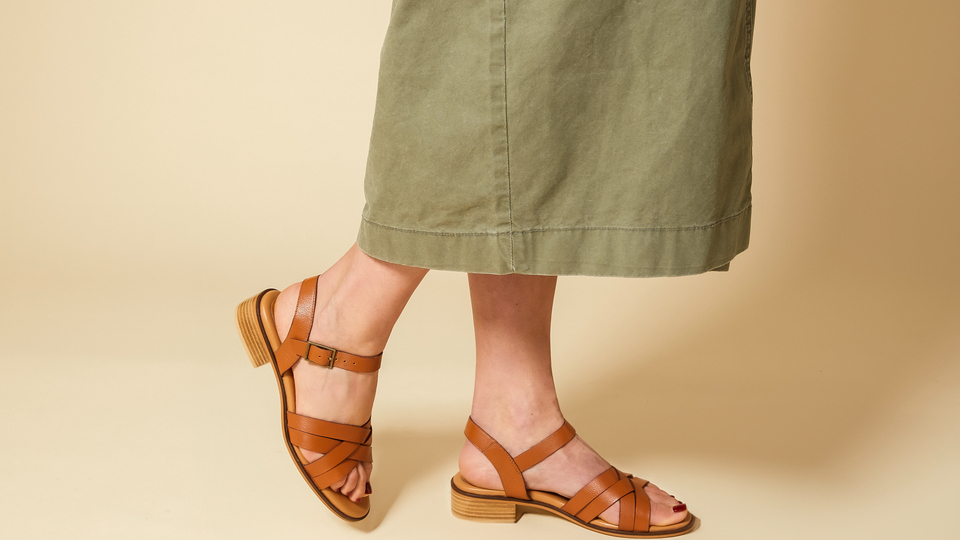
How Different Sandal Types Should Fit
Hopefully you’re aware already, but sandals cover so much more than the traditional flip flop style. And with so many styles to choose from, here are some style-specific pointers to help you find a good fit.
How Should Wedge Sandals Fit?
Wedge sandals are a welcome addition to any summer wardrobe. Whether it's a subtle low wedge or a bold skyscraper heel, a well-chosen and well-fitting pair of wedge sandals will outlast any fad.
Finding a pair of wedge sandals that fit well comes down to the following considerations:
- They should provide adequate support for your foot, particularly the arch, with your whole foot sitting comfortably on the sandal’s footbed
- They should offer stability, with no wobbling while you walk. A wobbly wedge sandal brings the risk of injury and should be avoided
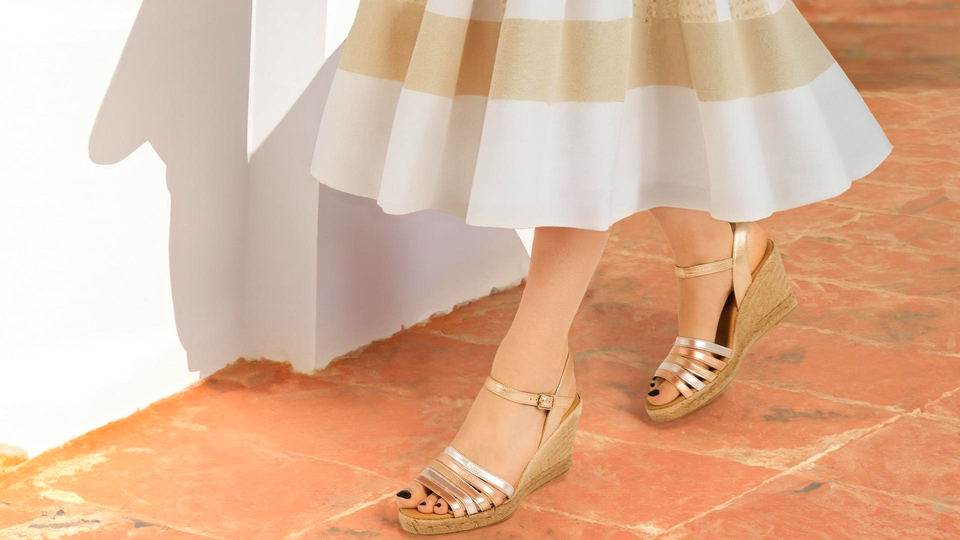
How Should Heeled Sandals Fit?
Whether high heel, block heel, clog or something else, heeled sandals bring refinement and class to any look. Finding the right pair requires you to ensure the following:
- The fit must be good around the heel, with no gap between your heel and the back strap
- The straps hold your feet securely without digging into your skin or causing other discomfort: this leads to comfort and stability
How Should Toe Post Sandals Fit?
Toe post sandals are relaxed and laid-back, bringing refinement to the traditional flip flop style. Ready to slip on at a moment's notice and able to complement any casual outfit, a pair of toe posts are a must-have for any man’s wardrobe.
Here’s how to make sure they fit:
- The toe post should fit comfortably between your toes, causing no irritation or rubbing
- Pay careful attention to the points above about overhang: your toes and heel should be comfortably contained within the confines of the shoe
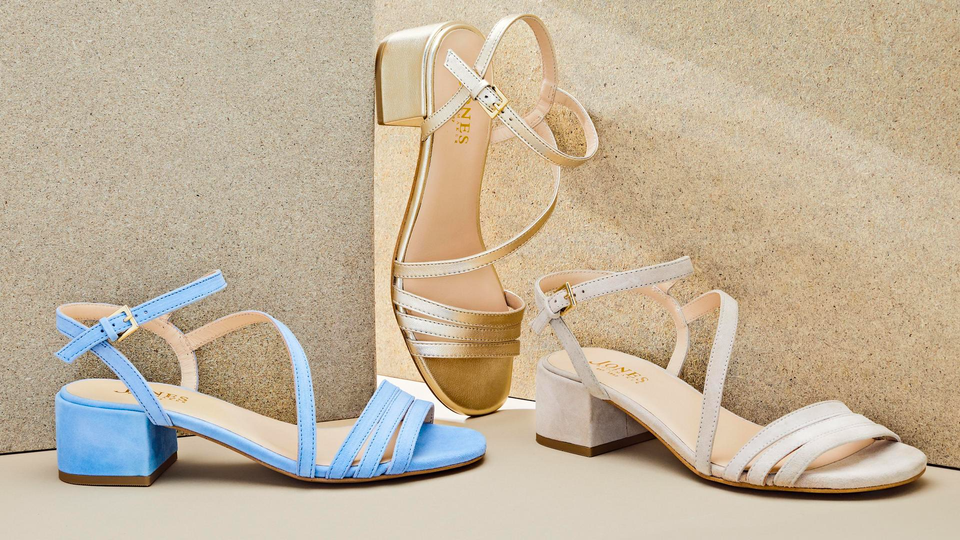
Get A Sandal on Things
There’s nothing quite like a well-fitting sandal. They’re comfortable, versatile, easy to wear, and, depending on the style, able to complement anything from a casual summer outfit to a refined outfit for a formal occasion.
We hope this guide has been helpful in developing your understanding of how sandals should fit, and why. Follow the simple steps in this blog post and you’ll be assured of a comfortable fit with no risk of injury in the long term, leaving you free to focus on enjoying yourself in style.